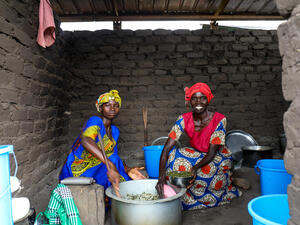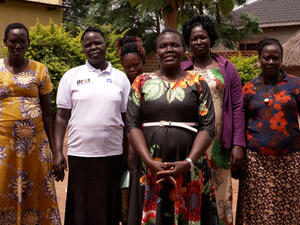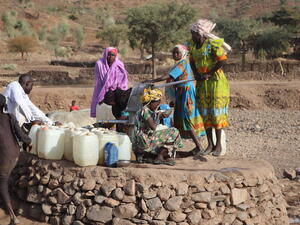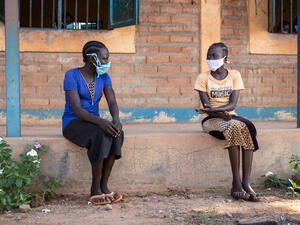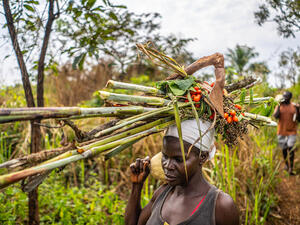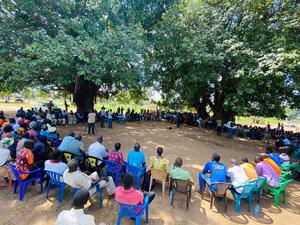'The world should not abandon South Sudan.'
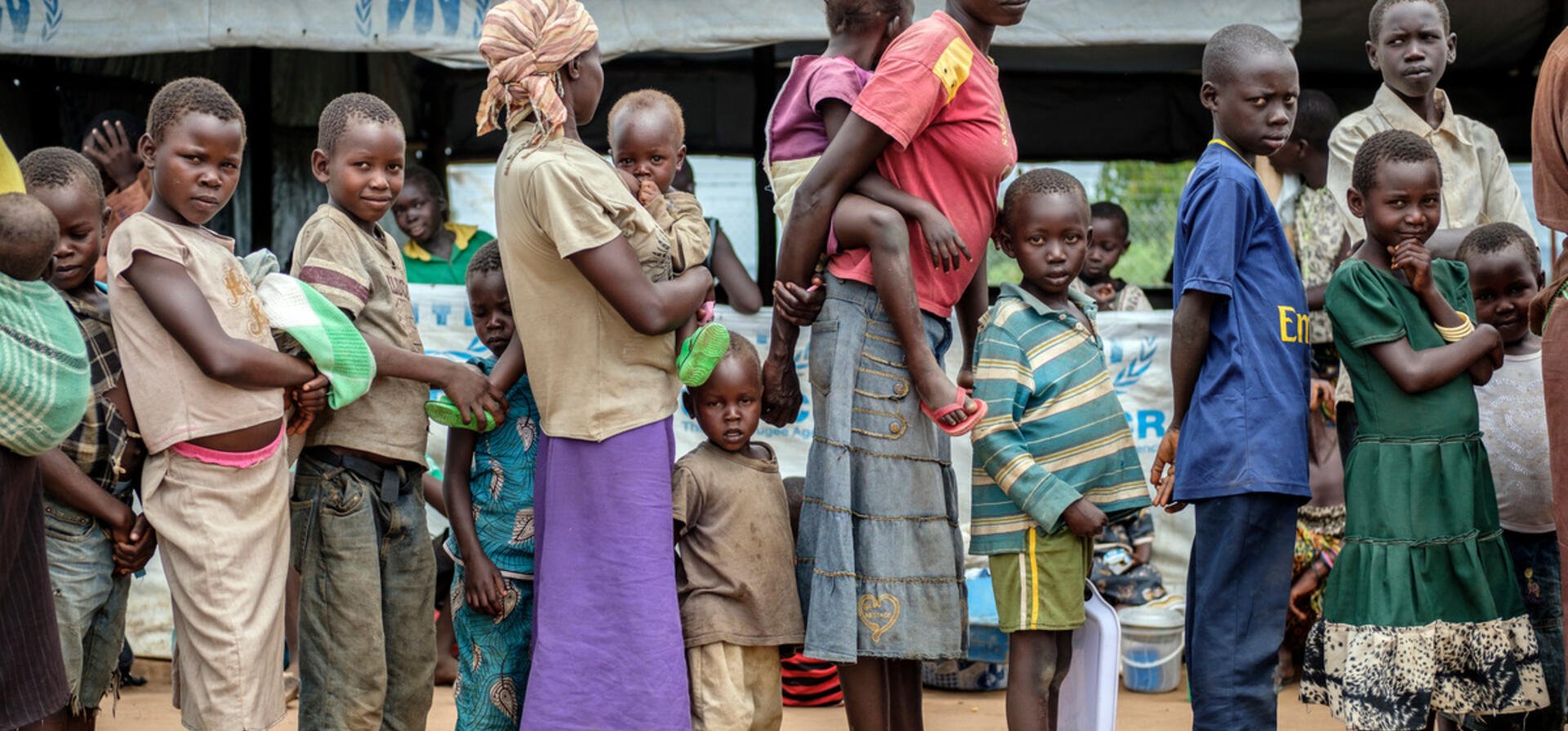
'The world should not abandon South Sudan.'
Five years since the conflict in South Sudan began, some 4.2 million people have been forcibly displaced both inside the country and across neighbouring countries.
Nearly 1.9 million people are internally displaced in South Sudan, living in Protection of Civilians Sites (POCs) and over 2.2 million are refugees, hosted in Sudan, Uganda, Ethiopia, Kenya, the Democratic Republic of the Congo (DRC) and the Central African Republic (CAR).
The signing of the Revitalized Agreement of the Resolution of the Conflict in South Sudan (R-ARCSS) last year in Addis Ababa, Ethiopia signalled a critical step towards bringing peace to the world's youngest country - and hopefully bring lasting solutions to the millions affected. The National Pre-Transitional Committee (NPTC), entrusted with implementing the activities under the R-ARCSS, is forging forward to implement the first phase of the Revitalized Peace Agreement.
Mr. Henry Odwar, the Deputy Chairman of the NPTC spoke to us following a meeting with Arnauld Akodjenou, UNHCR’s Regional Refugee Coordinator and Special Advisor to the High Commissioner for the South Sudan Situation. He explained the role of the NPTC and the support needed to ensure that the Revitalised Peace Agreement is realized as intended.
Mr. Odwar, you recently returned to South Sudan after the signing of the Revitalized Agreement of the Resolution of the Conflict in South Sudan. What influenced your decision to return?
My participation in the current peace process is not something out of the blue. I was a representative of my constituency in the South Sudan Government, so coming back was one way of continuing to do what I can for the good of the people of South Sudan. This is what prompted me to engage in the peace process. There is a lot of work to be done and as long as I have this little life in me I will remain devoted to work for the people of South Sudan.
"There is a lot of work to be done...I will remain devoted to work for the people of South Sudan."
You have taken up the role of Deputy Chairman of the National Pre-Transitional Committee. What is the purpose of this Committee with regard to the Revitalised Peace Process and your role specifically?
NPTC is an institution that was created through the Revitalized Peace Agreement to oversee its implementation alongside other committees. A key role is to ensure that timelines of implementation of the Revitalized Peace Agreement are followed. We are currently running behind schedule and we have to reprioritize. Scrutiny of the timelines is important so that we do not miss any important component that is supposed to be implemented. My main role is to ensure that whatever is done is in accordance with the Agreement. We are committed to the peace process.
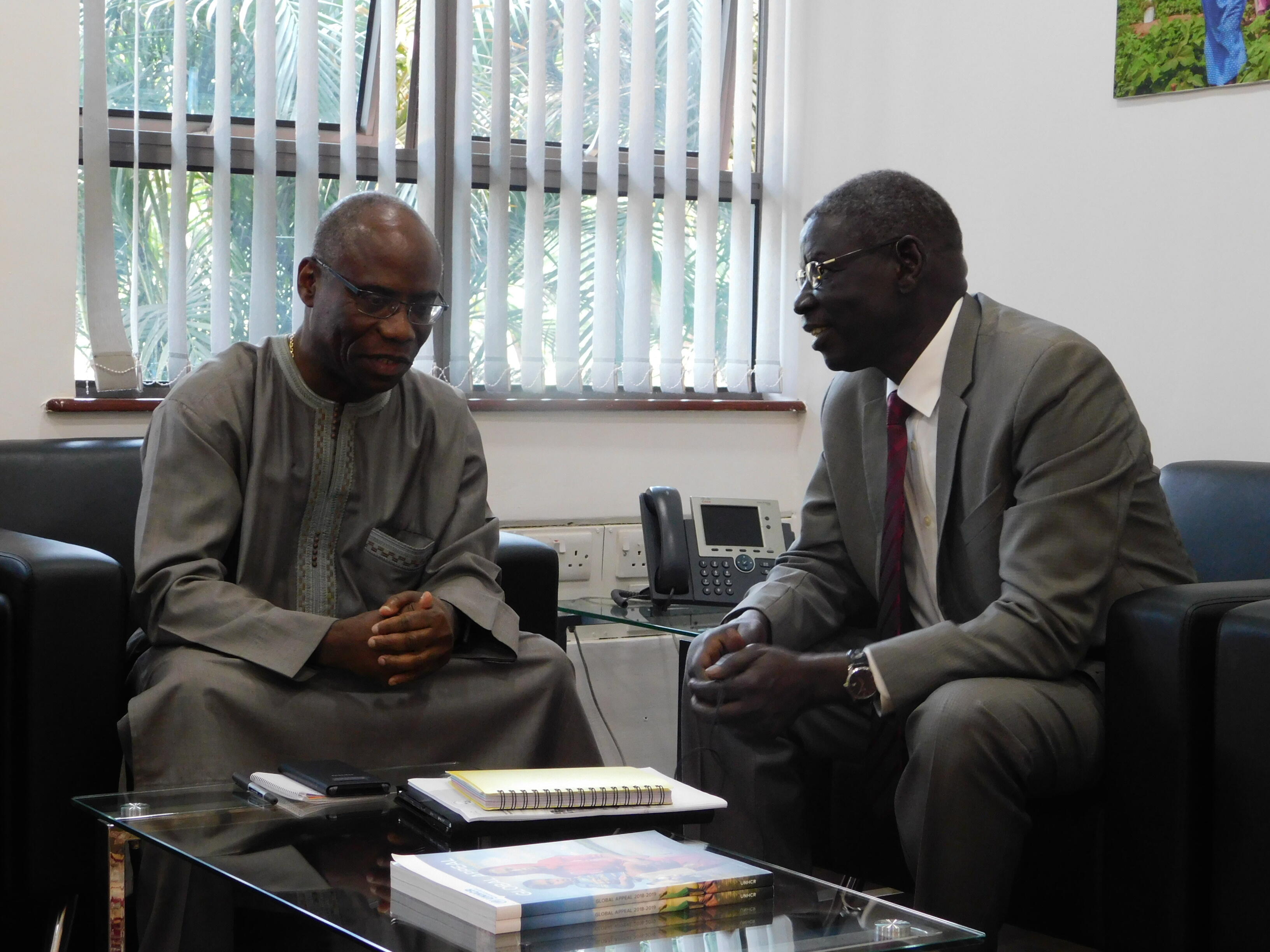
Mr. Henry Odwar (right) meets with Arnauld Akodjenou, UNHCR's Regional Refugee Coordinator and Special Advisor to the High Commissioner for the South Sudan Situation.
What role is NPTC playing to promote the inclusion of 4.2 million forcibly displaced South Sudanese people in the implementation of the Revitalized Peace Agreement?
Dissemination of the Agreement to refugees is an area of great concern to us. Our involvement as NPTC is to create committees that will help in disseminating what we shall agree on as the national dialogue. People will have to come to terms with the causes of the situation that caused displacement and as a way forward, there has to be peace and reconciliation so that there is healing. If we do this, the over 4.2 million displaced South Sudanese nationals will go home with open and liberated hearts and ready to begin a new life. That is why it is important to disseminate the information to all South Sudanese nationals who have been displaced. The main challenge remains the lack of funds needed to successfully carry out these activities. This is why we need the support of the international community. As far as the refugees are concerned, they have to be very confident and assured of the process.
"We need the support of the international community."
Which areas do you think UNHCR, regional bodies and the international community should actively be engaged in so as to ensure that peace prevails in South Sudan?
The role of UNHCR has always been enormous. We need UNHCR’s support in disseminating information pertaining to the Revitalized Peace Agreement to all South Sudanese refugees and beyond. UNHCR should also engage community leaders to ensure there is peace and reconciliation in the camps as part of the healing process.
I believe the region has a big role to play for the realization of peace in South Sudan. The countries in the region are the ones hosting South Sudanese refugees and they are the guarantors of this peace process. There is a lot that the region can do to create a conducive and peaceful environment in South Sudan.
The region and the international community should not abandon us. Other stakeholders should not leave everything to South Sudan, they should come in and support us.


